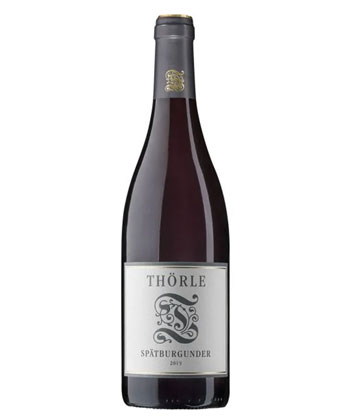The labels on this superb wine are a prime example of why so many people find the language(s) of wine so intimidating. So, before we go any further, let’s translate from German:
Thörle is the winery, Spätburgunder is the grape (Pinot Noir), trocken means it is a “dry” wine, and Rheinhessen is the wine region, which is the largest in Germany and sits along the Rhine River with its cooling influence.
And what a wine it is. Outstanding Pinot Noirs in the $20 or so range are few and far between, especially from such Pinot powerhouses as Burgundy, California’s Russian River Valley, and Oregon’s Willamette Valley. Which is why it makes so much sense to venture off the familiar path to regions lesser known for the grape like Germany, France’s Loire Valley, New Zealand, and even the Finger Lakes in New York.
Don’t Miss A Drop
Get the latest in beer, wine, and cocktail culture sent straight to your inbox.

Made from organic grapes grown in limestone and clay soils, Thörle’s 2019 Spätburgunder is marked by earth and mineral notes that infuse dark fruit tastes, especially blackberry and tart blueberry. Touches of cinnamon and herbs are in the background of this fruit-forward wine, which, even with 20 months of aging in oak barrels, is fresh and lively.
The wine is beautifully balanced, with alcohol at 13.5 percent and refreshing acidity — the essence of cooler-climate Pinot Noir.
Herb-roasted chicken, grilled pork chops, and sautéed salmon filets are among the obvious food pairings.
One more thing on the back label is worth noting: The wine is unfiltriert, or unfiltered, which many believe keeps wines more flavorful.
Which ultimately begs the question: Why not just create a label for the American market that says “Thörle Dry Pinot Noir Unfiltered”? It sounds simple enough, but traditions, including hundreds of years of German winemaking, are hard to change. We can only hope.